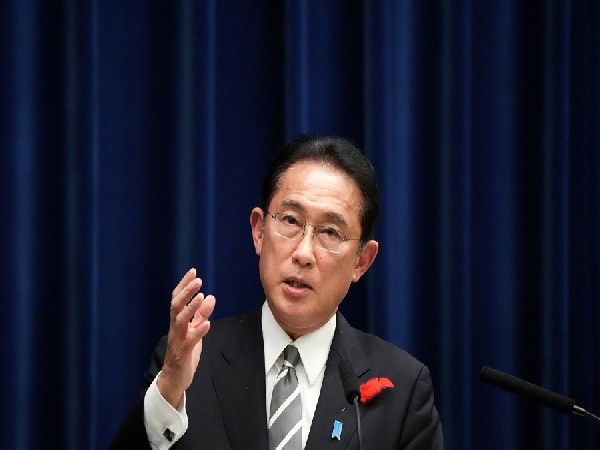Japan PM Kishida condemns China's unilateral attempts in the East and South China seas
Japanese Prime Minister Fumio Kishida expressed strong concern over human rights issues in China during his remarks at a virtual meeting of leaders from about 50 Asian and European countries on Friday.

- Country:
- Japan
Japanese Prime Minister Fumio Kishida expressed strong concern over human rights issues in China during his remarks at a virtual meeting of leaders from about 50 Asian and European countries on Friday. Kishida voiced worries about the human rights situation in Hong Kong as well as the Xinjiang region in northwestern China on the sidelines of the two-day summit, Kyodo News reported.
Further, the Japan Prime Minister also said he strongly opposes unilateral attempts to change the status quo in the East and South China seas, apparently criticizing China's military buildup. Leaders of European countries on Thursday, the first day of the summit, also expressed concern about friction between China and other nations over human rights and other issues.
The leaders expressed concerns over the situation in Myanmar, where the military seized power after toppling a civilian government led by Aung San Suu Kyi in February this year. On the other hand, the ASEM leaders urged the ruling junta to accept a special envoy of the Association of Southeast Asian Nations, who is supposed to mediate between the stakeholders in the country.
Myanmar did not participate in the ASEM summit, after being told that only a "nonpolitical representative" could attend, the Japanese publication reported citing ASEAN sources. During the meet, instead of specifically referring to territorial disputes in the South China Sea, the leaders mentioned the importance of a peaceful solution to conflicts based on international law and freedom of navigation.
The ASEM group involves about 50 countries from Asia and Europe.
(With inputs from agencies.)
ALSO READ
U.S.-Russia Peace Talks Stalled Amid European, Ukrainian Concerns
Zelenskiy Pushes for Broader European Consultations
Doubt on European-Ukrainian Peace Proposals for Ukraine Conflict
European Shares Hit Record High Amid Defence and Insurance Stock Surge
Remembering Age Hareide: A Legacy in European Football










